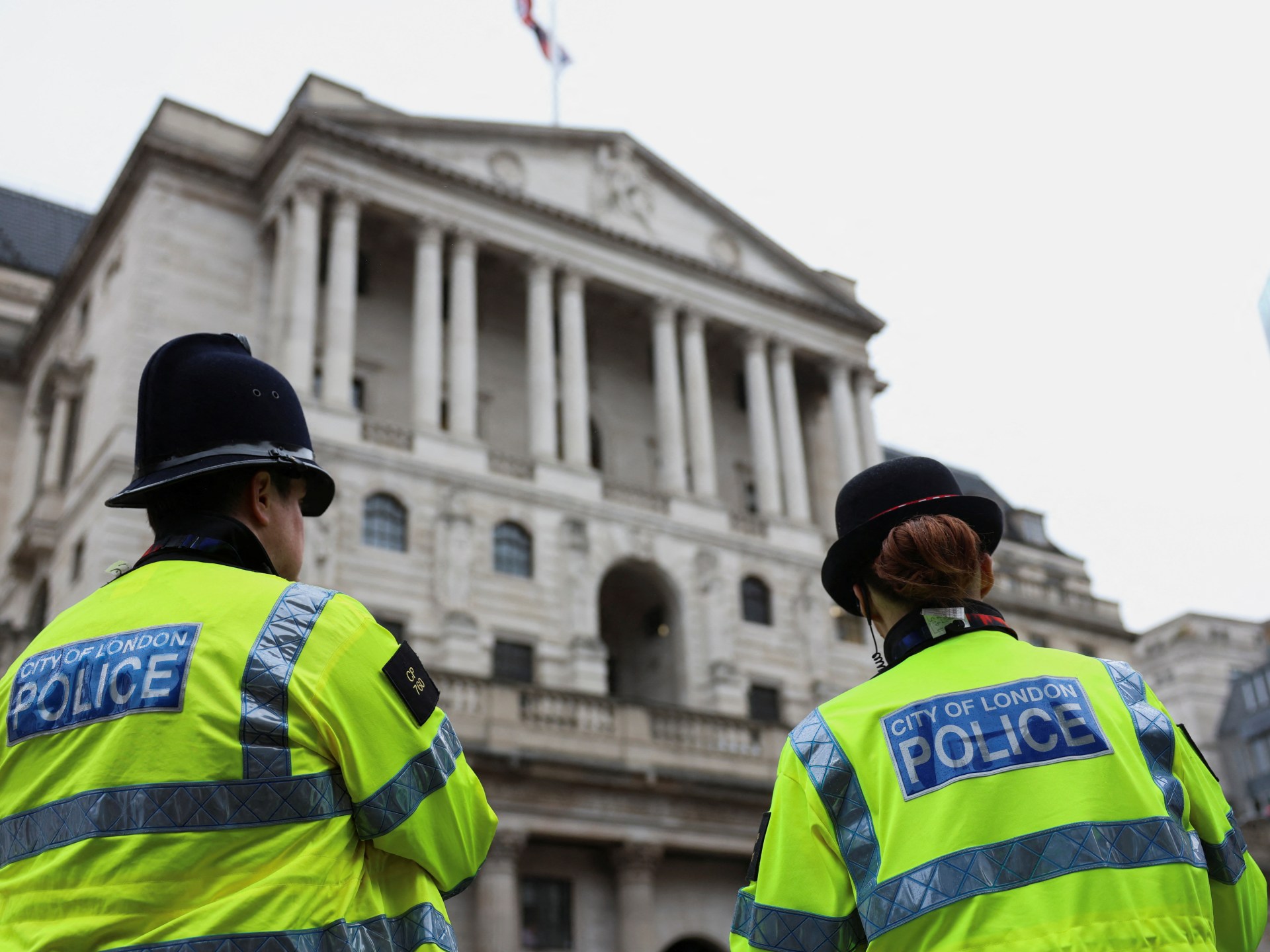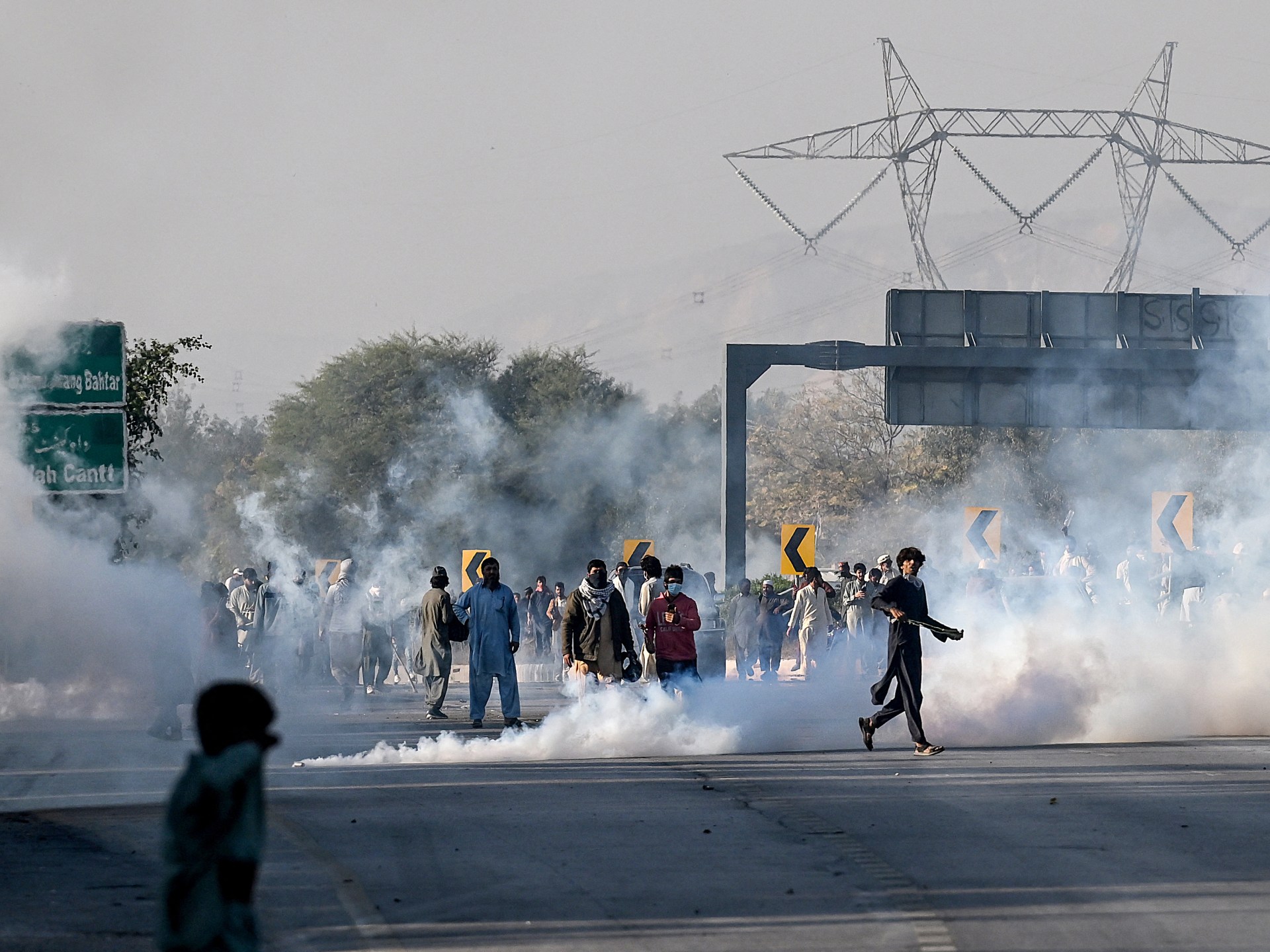What are ‘non-crime hate incidents’ which have become so hated in the UK?
 21 December 2024
21 December 2024


Last month, a British journalist revealed that she had been visited by police at her Essex home over a post she wrote relating to Pakistan’s former Prime Minister Imran Khan, on X a year earlier.
On November 12, Allison Pearson, a columnist for the right-wing newspaper, The Daily Telegraph, claimed she was being investigated for a “non-crime hate incident” (NCHI). The police later disputed this, saying she was being investigated for a potential criminal offence of stirring up racial hatred, rather than an NCHI, but in any case, the probe was dropped a few days later.
Whether the police were investigating Pearson for a non-crime hate incident or, indeed, for a criminal offence, the row over her experience has brought discussions about the contentious practice of recording NCHIs to the fore.
This week, Nick Herbert, the chairman of the College of Policing, said the government should consider scrapping NCHIs altogether, and claimed the recording of NCHIs has become an “impediment to the police”.
Advertisement
While some want the practice scrapped, however, others assert that recording NCHIs is important.
But what is a “non-crime” hate incident and what do people in the United Kingdom think about the police investigating them?
What are non-crime hate incidents?
The Police, Crime, Sentencing and Courts Act 2022, which applies to England and Wales, describes an NCHI as an action which is “clearly motivated by intentional hostility or prejudice towards people with a particular characteristic”.
These characteristics could be race, religion, sexuality, disability or transgender identity.
The West Yorkshire Police website lists examples of NCHIs which include verbal or online harassment, bullying in the school or the workplace, offensive leaflets or posters and dumping of rubbish outside homes or through letterboxes.
Police in England and Wales have been required by law to record reports of NCHIs since June 2023.
Scotland implemented its own hate crime law – the Hate Crime and Public Order (Scotland) Act – in April 2024. This also mentions NCHIs: “It is an operational matter for Police Scotland to determine how reports of a hate crime or hate incident are investigated and recorded and these are not in any way related to the Hate Crime Act.”
Why do people say police recording NCHIs is problematic?
Some argue that NCHIs curtail freedom of speech, waste police time and are targeting people who should not be on the police radar.
Last month, The Times newspaper revealed its own investigation, which found that a nine-year-old who called a classmate a “retard” and two secondary school pupils who said another pupil “smelled like fish” had been logged by police as having committed NCHIs.
Advertisement
Other children had also been reported – and their actions recorded by police – The Times investigation found. The Times said it uncovered “widespread confusion” among police over what types of incidents should be recorded.
Complaints of NCHIs have increased recently. Based on data from 45 of the UK’s 48 police forces, 13,200 complaints were recorded over the last year. Based on this number of complaints, UK think tank Policy Exchange projected in a report published on November 25, that more than 60,000 police hours per annum were spent on NCHIs.
Nick Herbert, the chairman of the College of Policing, told the media this week: “I think it has become an impediment to the police doing what we want the police to do, which is ensure that they are preventing harm, identifying where there is risk of harm, ensuring that it can be prevented … the category itself has become controversial and a distraction.”
Why do some people say they are necessary?
Some argue that monitoring NCHIs is necessary because they can be indicative of hateful behaviour that may escalate into criminal behaviour.
Danny Stone, the chief executive of the UK-based Antisemitism Policy Trust, wrote for the news blog Conservative Home that “victim-led hate reporting has had significant and important positive impacts for police, and communities, in diagnosing harm, extremism, and failing integration or community-cohesion efforts”.
Stone also cited a 2007 instance when a woman in Leicestershire killed herself and her severely disabled daughter after a decade of torment from local youths. It was found that the woman, Fiona Pilkington, had contacted the police 33 times about the misbehaviour. Despite eight visits to the family by the police, no action was taken.
Advertisement
Who has been investigated for non-crime hate incidents?
In 2019, former policeman Harry Miller was investigated by the Humberside Police for “transphobic comments” on his X account. He wrote 31 posts between November 2018 and January 2019 expressing what was later described as “gender critical views”, which are protected in law since the 2021 Forstater ruling that they qualify as “philosophical beliefs” for equality law purposes.
In one post, he wrote: “Transwomen are women. Anyone know where this new biological classification was first proposed and adopted?”. Another post said: “I was assigned Mammal at Birth, but my orientation is Fish. Don’t mis species me.”
Miller took the police to court over the investigation, claiming his right to free speech was potentially being denied. The court sided with Miller, saying his views were within the scope of free speech protection.
The judge ruled that there was no evidence Miller’s posts “were ‘designed’ to cause deep offence”, and his posts “were not directed at the transgender community,” instead, they were directed to his X followers.
On November 10 this year, Daily Telegraph journalist Allison Pearson, 64, claimed in her newspaper column that the police “showed up” at her Essex home and informed her that she had been accused of a NCHI for a post she made on X one year before. She claimed they said they were not allowed to tell her what particular X post it was, or who had complained about it.
Pearson denied that she had posted “hateful” content.
Advertisement
The Guardian reported that Pearson’s X post was an image of two people of colour holding the flag of Pakistan Tehreek-e-Insaf (PTI), the party of jailed former Pakistani Prime Minister Imran Khan. Pearson captioned the image: “Look at this lot smiling with the Jew haters,” possibly having mistaken the PTI flag for the Hamas flag. She later deleted the post.
Essex police, which later told The Guardian that Pearson was in fact being investigated for the potential criminal offence of inciting racial hatred rather than an NCHI and released bodycam footage from its police officers to prove this, dropped the investigation altogether on November 21.
Following the Allison Pearson incident, right-wing news presenter and activist Darren Grimes claimed he had been investigated for an NCHI in 2020.
Who else is campaigning against NCHIs?
Some conservatives, as well as advocates of free speech, are campaigning against the recording of NCHIs, including British non-partisan organisation, the Free Speech Union.
In a statement, the Free Speech Union said the monitoring of NCHIs is “a recent and chilling restriction of our free speech”.
Policy Exchange published a report on November 25, authored by its head of crime and justice, David Spencer. Monitoring NCHIs is “a chilling distraction from the public’s priorities on policing”, Spencer, a former chief inspector in the Metropolitan Police, wrote.
Advertisement
Spencer added that recording NCHIs is a distraction for the police.
Former Secretary of State Suella Braverman of the Conservative Party has also been critical of NCHIs. In 2023, when the Conservative Party was still in power, Braverman published new guidance decreeing that incidents should only be considered NCHIs if they are “clearly motivated by intentional hostility”.
Last month, The Telegraph reported that Labour Home Secretary Yvette Cooper is considering reversing this change to enable the monitoring of anti-Semitism and Islamophobia which could escalate into violence.
Related News

Mauritius issues arrest warrant against former central bank governor

One killed, dozens injured as supporters of Imran Khan protest in Pakistan

Namibia faces election chaos as voting extended after ‘irregularities’

